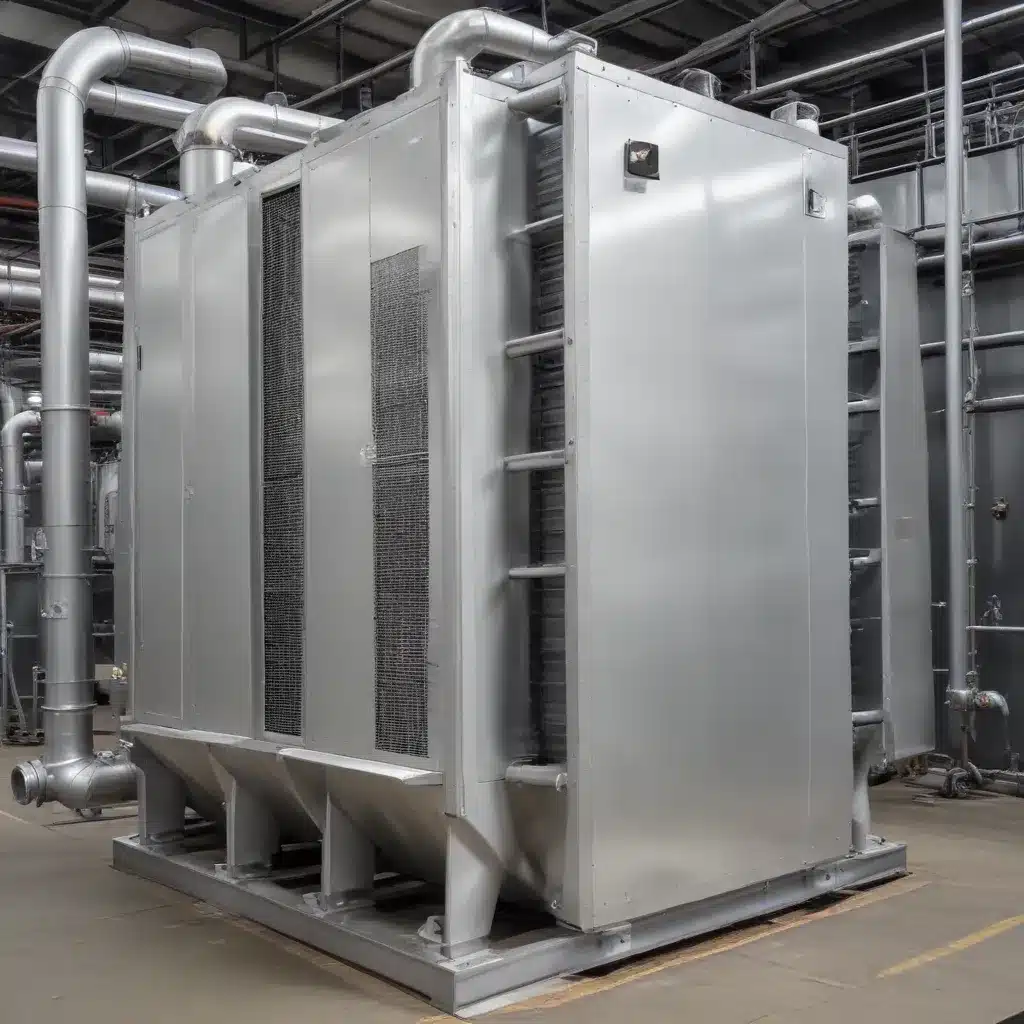
The Importance of Heat Exchangers in Industrial Processes
In today’s rapidly evolving industrial landscape, maximizing operational efficiency while minimizing environmental impact is a critical priority. At the heart of this challenge lie heat exchangers – fundamental components that play a pivotal role in a wide array of industries, including the food and beverage sector.
Heat exchangers are ingenious devices designed to transfer heat between two or more fluids, without these fluids coming into direct contact with each other. Through this efficient heat transfer mechanism, heat exchangers contribute to processes like heating, cooling, and heat recovery, resulting in enhanced energy efficiency and cost-effectiveness.
“Heat exchangers are crucial for maintaining precise temperature control in various industrial processes, ensuring the quality and safety of consumable goods,” explains an industry expert. “Their ability to capture and reuse waste heat is particularly valuable in the food and beverage industry, where energy efficiency and sustainability are paramount.”
Unlocking the Potential of Air-Cooled Heat Exchangers
Among the diverse range of heat exchanger designs, air-cooled heat exchangers stand out as a particularly versatile and energy-efficient solution. Unlike their water-cooled counterparts, air-cooled heat exchangers leverage the natural convection of air to facilitate heat transfer, eliminating the need for a cooling water supply.
This inherent design advantage makes air-cooled heat exchangers an attractive option for industries like food and beverage, where water resources may be limited or where minimizing water consumption is a key priority. By harnessing the power of air, these heat exchangers can effectively recover waste heat, reducing energy costs and lowering the environmental impact of industrial operations.
Optimizing Air-Cooled Heat Exchanger Performance
To maximize the performance and efficiency of air-cooled heat exchangers in waste heat recovery applications, several critical factors must be considered:
Proper Sizing and Design
Ensuring the right size and configuration of the air-cooled heat exchanger is crucial to achieving optimal heat transfer. Factors such as the volume and temperature of the waste heat, the desired cooling capacity, and the available space constraints must be carefully evaluated during the design phase. Employing computational fluid dynamics (CFD) simulations can help optimize the heat exchanger’s geometry, airflow patterns, and thermal performance.
Airflow Management and Fan Selection
Efficient airflow management is key to maximizing the heat transfer capabilities of air-cooled heat exchangers. Factors like fan selection, air inlet and outlet configurations, and the use of baffles or fins can significantly impact the heat exchanger’s effectiveness. Carefully balancing airflow, pressure drop, and energy consumption is essential for optimizing the system’s performance.
Maintenance and Cleaning
Proper maintenance and regular cleaning of air-cooled heat exchangers are fundamental to maintaining their peak efficiency. Fouling and corrosion can gradually impair the heat transfer surfaces, reducing the exchanger’s overall performance. Implementing a comprehensive maintenance program, including chemical cleaning and periodic inspections, can help ensure the long-term reliability and optimal performance of these critical components.
Material Selection and Corrosion Resistance
The choice of materials used in the construction of air-cooled heat exchangers can have a profound impact on their durability and resistance to corrosion. In the food and beverage industry, where the presence of various chemicals and harsh environments is common, selecting the right materials, such as stainless steel or corrosion-resistant alloys, can greatly extend the heat exchanger’s lifespan and minimize the need for costly repairs or replacements.
Monitoring and Optimization
Continuous monitoring and optimization of air-cooled heat exchanger performance are essential for maximizing waste heat recovery and energy efficiency. Advanced sensors, data analytics, and control systems can provide real-time insights into the exchanger’s operating parameters, enabling operators to make informed decisions and fine-tune the system for optimal performance.
Enhancing Sustainability and Cost-Effectiveness
By optimizing the performance of air-cooled heat exchangers in the food and beverage industry, companies can unlock significant benefits beyond just improved energy efficiency. These include:
-
Reduced Energy Costs: Effective waste heat recovery through air-cooled heat exchangers can lead to substantial savings on energy bills, improving the overall profitability of the operation.
-
Decreased Environmental Impact: Minimizing energy consumption and waste heat discharge translates to a lower carbon footprint, aligning with the industry’s sustainability goals and meeting evolving regulatory requirements.
-
Increased Operational Resilience: Robust maintenance practices and corrosion-resistant materials can extend the lifespan of air-cooled heat exchangers, reducing the need for costly replacements and ensuring uninterrupted production.
-
Enhanced Competitiveness: By optimizing energy efficiency and demonstrating a commitment to sustainability, food and beverage companies can strengthen their brand reputation and appeal to environmentally conscious consumers.
Embracing the Future of Efficient Heat Exchange
As the food and beverage industry continues to prioritize sustainability and operational excellence, the role of air-cooled heat exchangers in waste heat recovery will only grow in importance. By leveraging the expertise of specialized engineering and maintenance service providers, like Quintel Inc., companies can unlock the full potential of these critical components and drive their operations towards a more energy-efficient and environmentally responsible future.
“Quintel Inc.’s commitment to excellence and sustainability in heat exchanger remanufacturing sets the standard for the industry,” says the expert. “Their cutting-edge approach to optimization and maintenance ensures that air-cooled heat exchangers continue to deliver exceptional performance, contributing to the overall efficiency and sustainability of the food and beverage sector.”
By embracing the power of optimized air-cooled heat exchangers, food and beverage companies can position themselves as leaders in the pursuit of a more sustainable industrial landscape, setting the stage for long-term success and environmental stewardship.

